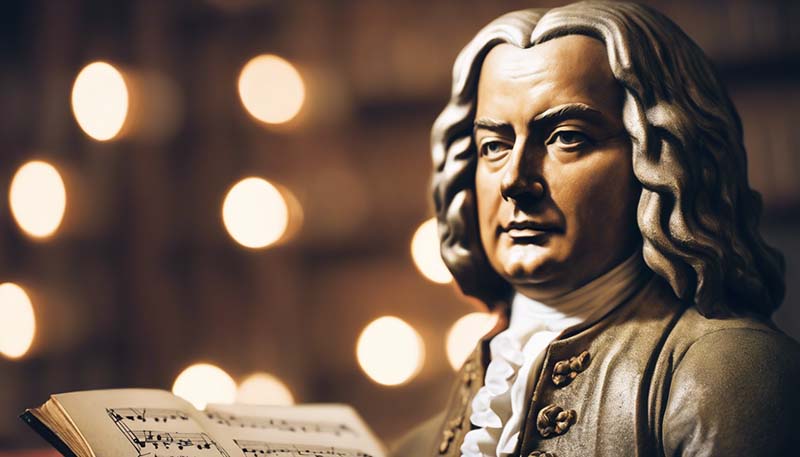- Brief overview of Bach's significance in the history of music.
- His influence on subsequent composers and the development of Western classical music.
**Early Life and Education:**
- Bach's birth in 1685 in Eisenach, Germany.
- His family's musical background and his early exposure to music.
- Training and education, including his time at the St. Michael's Church School in Lüneburg.
**Career:**
1. **Weimar Years:**
- His appointment as court musician to the Duke of Weimar.
- Compositions from this period, such as the Brandenburg Concertos.
2. **Cöthen:**
- Bach's position as Kapellmeister to Prince Leopold of Anhalt-Köthen.
- The composition of the violin works, including the Sonatas and Partitas for Solo Violin.
3. **Leipzig:**
- Bach's move to Leipzig and his role as Thomaskantor (director of the choir school at St. Thomas Church).
- His composition of cantatas, the St. Matthew Passion, and the St. John Passion.
4. **Later Life:**
- His final years, including the composition of the Mass in B minor and the Art of Fugue.
**Musical Style and Innovations:**
- Discussion of Bach's Baroque style and its characteristics.
- His use of counterpoint, harmony, and motivic organization.
- Innovations in the form of the fugue and the development of the chorale prelude.
**Legacy and Influence:**
- Bach's relative obscurity during the later years of his life and after his death.
- The "Bach Revival" in the 19th century and the subsequent recognition of his genius.
- Influence on composers such as Beethoven, Mozart, and later Romantic and modern composers.
**Selected Works:**
- **Orchestral Works:** Brandenburg Concertos, Orchestral Suites.
- **Chamber Music:** Sonatas and Partitas for Solo Violin, Cello Suites.
- **Vocal Music:** St. Matthew Passion, St. John Passion, Mass in B minor.
- **Keyboard Works:** The Well-Tempered Clavier, Goldberg Variations, Toccata and Fugue in D minor.
**Conclusion:**
- Bach's enduring impact on music and his status as one of the most important composers in the Western classical tradition.
- The universality and timelessness of his music.
**Bibliography:**
- List key sources and references for further reading about Bach's life and works.

**Note:** When writing your article, ensure that you provide detailed descriptions, analysis, and examples from Bach's music to support your points. Additionally, consider including quotes from musicologists and historians to add depth to your discussion. Remember to adhere to academic standards for citation and to respect copyright laws when using any direct quotes or excerpts from existing works.
To create a full article, you would expand upon each of these points with detailed information and analysis, ensuring that each section is well-developed and contributes to a comprehensive understanding of Johann Sebastian Bach's life and music.